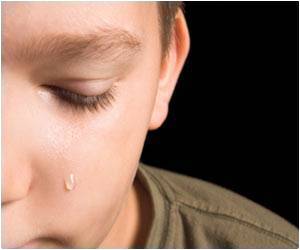Children with hearing loss have higher capacity for learning languages, even if they have poor cognitive abilities. Early screening can help these children.

TOP INSIGHT
Early screening and intervention programs can help children who are deaf or hard of hearing do better in life.
"We have focused efforts for children who are deaf or hard of hearing on obtaining a language level that is often considered in the normal or average range on standardized assessments," says Jareen Meinzen-Derr, PhD, an epidemiologist at Cincinnati Children's and lead author of a new study.
"But their language skills are not good enough if we account for their cognitive abilities."
Dr. Meinzen-Derr says there is a mismatch between the cognitive level children test at and the expectations for their language skills. With a slightly modified evaluation approach, therapists would be able to recognize these mismatches at very young ages, she says, and intervene to bring these children up to their ability.
"We should not be satisfied with language levels that are lower than a child's cognitive ability." The study is published online in the Journal of Developmental and Behavioral Pediatrics.
The second phase began in 2014 and enrolled children up to 3 years old, also with mild to profound bilateral hearing loss. A total of 152 children were enrolled.
"We believe that all children have potential," says Meinzen-Derr.
"Our measurements give us a target for that potential so that we at least know what the language goals for a child should be. This also has implications for other aspects of development, such as social development and further down the road - academics. This is why we are pushing for better intervention, because we know we can do better for children who are deaf or hard of hearing."
Source-Eurekalert
 MEDINDIA
MEDINDIA




 Email
Email










